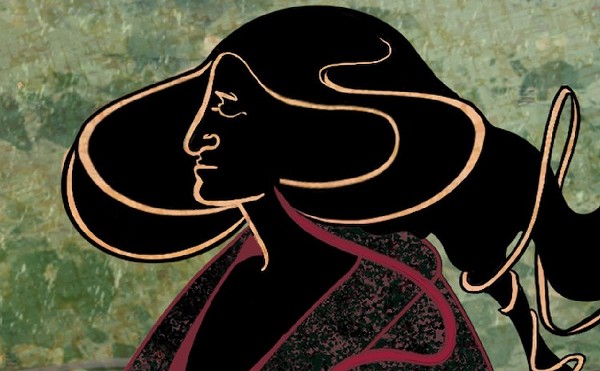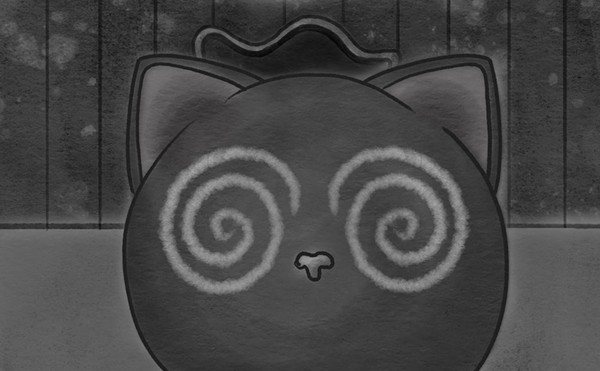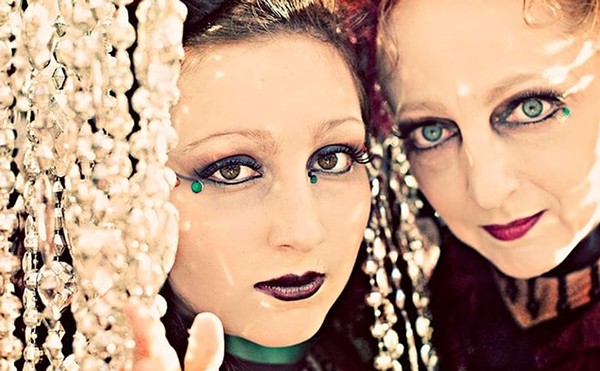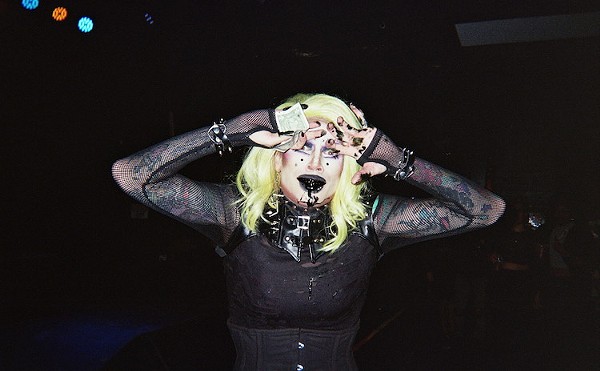There's a stretch of plotting late in "Angel Eyes" that comes off as a hopelessly contrived attempt to wrench the moisture from viewers' tear ducts. A beautiful, troubled young woman delivers a heartfelt speech to her father via a video camera, recounting a treasured childhood memory. Dad, tears streaming from his face, watches silently in the background. Meanwhile, a seemingly off-kilter, unconventionally handsome man has his own one-way conversation, this one set in a cemetery. Moments later, the two lost souls reconvene for an emotional exchange. Love reigns o'er them. It's all too much -- really.
That overheated passage puts a damper on "Angel Eyes," an urban melodrama that's more engrossing than it ought to be, given its slim story line and subdued moodiness. Don't be deceived by the trailers: This film -- directed by Luis Mandoki (Message in a Bottle, "When a Man Loves a Woman") -- is less a supernatural thriller than a reasonably compelling story of lovers whose paths cross in surprising ways.
Jennifer Lopez is Chicago cop Sharon Pogue, a gal so tough that she easily exchanges ribald insults with her male colleagues. Bad-ass criminal suspects are routinely bloodied under her watch. Yet Sharon is also compassionate, as indicated during the film's prologue, which places her at a bloody accident scene on a rainy night.
"Stay with me," she begs a survivor. "Stay with me."
Sharon has strained relations with her brother (Jeremy Listo), mother (Brazilian star Sonia Braga) and father (Victor Argo, a Martin Scorsese and Woody Allen regular), due to an unstated trauma that resides in their collective past. Her social life is little more than a string of uninteresting dinner dates, interrupted by occasional sexual encounters.
Enter the unshaven face, million-dollar smile and easygoing personality of the appropriately named Catch (Jim Caviezel of Frequency and The Thin Red Line). He's a man without a past, not much of a present and -- by the looks of his barren apartment, his rumpled clothes and his apparently aimless existence -- no future to speak of, either.
Catch saves Sharon's life, and the two proceed to drift into one another's spheres. She's looking for a real emotional connection, complete with an exchange of information regarding her beau's background. He isn't, which only adds to the intrigue that surrounds him.
"My name is Catch," he offers in response to her questions. "I don't commit any crimes. And I like being with you."
Bit by bit, Catch's identity is revealed, particularly when he takes the stage at a local jazz nightclub, picks up a trumpet and plays a beautiful, soulful version of the chestnut "Nature Boy." (Oddly, the Matt Dennis standard "Angel Eyes" isn't heard at all). The sequence is also the occasion for the most unintentionally funny moment of the film: Just before the two enter the club, Karen hears the sound of a trumpet, sees the word "jazz" on the front of the building, notices Catch's interest in the music, and asks, "What, you like blues?"
The music may not be blues, but the mood of the movie is consistently bluesy and downbeat. Catch is a perennial sad sack (for good reason) and Karen's a sort of tortured artist, criminal-justice division. Their eventual romance isn't that difficult to swallow, to the credit of Mandoki and screenwriter Gerald Dipego ("Message in a Bottle," "Phenomenon"). But one would guess that therapy sessions, and lots of them, will figure heavily in this couple's future.

















